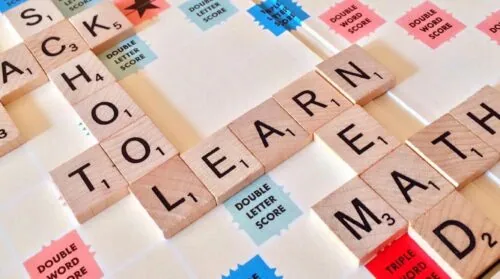Welcome to our comprehensive guide on pursuing a rewarding career as a librarian. If you are passionate about books, information, and community service, this career may be perfect for you. This guide will provide a detailed look at what librarians do, available educational paths, diverse workplaces, daily responsibilities, career advancement opportunities, and more.
Whether you are a high-school graduate exploring your options, a college student considering your majors, or a professional thinking about a career shift, understanding the role and impact of librarians could open up new, exciting opportunities. Dive into the world of librarians—an ever-evolving field where you can impact education and access to information.
Who Are Librarians?
Librarians are professionals who manage, organize, and facilitate access to information and resources. Their roles are critical in various settings, including schools, public libraries, universities, and corporate environments. Far from the old stereotype of simply checking out books, librarians today are dynamic, tech-savvy information specialists who support learning and promote literacy in diverse communities.
Key Characteristics of Librarians
- Information Experts: Librarians have deep knowledge in effectively sourcing, evaluating, and organizing information.
- Technology Savvy: They skillfully use modern technology to manage databases, create digital libraries, and facilitate virtual research.
- Community-Focused: Librarians serve and engage with distinct groups, tailoring resources and services to meet community needs.
Educational Background
Typically, librarians hold a Master’s degree in Library Science (MLS) or Information Studies. Renowned institutions like the School of Information Studies at Syracuse University offer programs tailored for aspiring librarians. This education equips them with critical skills in information management and user services.
Certifications and Skills
Beyond their degree, many librarians pursue specialized certifications depending on their roles, such as certifications in archival studies or digital management. These qualifications enhance their skills and, perhaps more importantly, their ability to serve their communities effectively.
Understanding the core of what librarians do sheds light on the importance of their roles in our society. They are not just keepers of books but are lifelines in the flow of information in a digital age.
The Vital Role of Librarians in Communities
Librarians play a multifaceted role that extends beyond traditional book lending. They are pivotal in fostering literacy, supporting education, and enhancing community engagement. Each librarian contributes to the community’s intellectual and cultural development, ensuring that individuals of all ages and backgrounds have access to essential resources and knowledge.
Promoting Literacy and Lifelong Learning
Librarians are at the forefront of literacy campaigns, particularly in settings lacking sufficient educational resources. They develop and implement programs encouraging reading and learning among children and adults. These initiatives improve literacy rates and inspire a lifelong love for learning.
Enhancing Digital Inclusion
In an increasingly digital world, librarians are essential in bridging the digital divide. They provide critical access to computers and high-speed internet, particularly in underserved areas. By offering digital literacy courses, they help community members use technology effectively, enhancing their personal and professional lives.
Supporting Academic Achievement and Research
Academic librarians play a crucial role in the educational process by aiding students and faculty with research, offering information literacy instruction, and managing academic resources. They ensure that educational institutions can access the latest research and study materials, significantly contributing to academic success.
Community Building and Engagement
Librarians also act as community builders. They organize events and workshops that bring people together, fostering a sense of community and belonging. These may include book clubs, educational workshops, and cultural events, which help in promoting mutual understanding and respect among diverse community members.
Through these diverse roles, librarians significantly impact their communities, proving that their work extends well beyond the walls of the libraries they manage. They are indispensable in promoting informed and connected communities. Learn more about how librarians enhance community engagement at the Institute of Museum and Library Services (IMLS).
Educational Requirements for Librarians
Librarians typically need a strong educational foundation to handle their extensive responsibilities. Below, we explore the most common educational paths in this field.
Essential Degrees
Most librarians begin their careers with a bachelor’s degree in any field, demonstrating a wide range of knowledge. However, the indispensable requirement is a Master’s Degree in Library Science (MLS) or Library and Information Studies (MLIS). These programs provide the necessary skills and knowledge to manage library resources and services effectively.
Accredited Programs
Aspiring librarians should seek programs accredited by the American Library Association (ALA) to ensure they receive high-quality education. Such accreditation guarantees the curriculum meets industry standards and covers technologies and practices essential today.
Specializations
Within their graduate studies, librarians can specialize in areas such as:
- Archival studies
- Digital librarianship
- Information architecture
- Public library services
These specializations help librarians better serve specific communities or improve their technological skills.
Continuing Education
Moreover, continuous learning is critical in this evolving field. Librarians often participate in workshops and courses to stay current with the latest digital tools and community engagement strategies.
This commitment to education empowers librarians to provide invaluable service and adapt to the ever-changing information landscape. Explore educational resources for librarians.
Diverse Work Environments for Librarians
Librarians work in various settings, each offering unique challenges and opportunities. Understanding these environments can help aspiring librarians choose a path that aligns with their interests and skills.
Public Libraries
Public libraries serve local communities, providing access to books, digital resources, and educational programs. Librarians here focus on community engagement and inclusivity, ensuring services meet the needs of diverse populations.
Academic Libraries
Found in colleges and universities, these libraries support higher education by offering specialized resources for students and faculty. Librarians assist with research, guide students on information literacy, and manage scholarly information.
School Libraries
In K-12 educational settings, librarians foster a foundation for lifelong learning and literacy among young students. They often collaborate with teachers to support curriculum development and student research projects.
Special Libraries
These are tailored to the needs of specific organizations, such as law firms, hospitals, or corporations. Librarians in these settings manage specialized collections and offer targeted information services that support the organization’s objectives.
Government Libraries
Government librarians work at various levels, from local to federal, managing resources that support government entities’ functioning and information needs. These professionals play a crucial role in archiving documents and making public records accessible.
This diversity in workplaces showcases the flexibility of the librarian profession, adapting to different audience needs and technological changes. Each setting provides unique opportunities to make a meaningful impact. Learn more about government libraries.
Daily Tasks and Responsibilities of Librarians
Librarians handle a broad range of tasks daily. These responsibilities ensure libraries function smoothly and effectively to meet user needs.
Collection Management
Librarians select, acquire, evaluate, and dispose of materials to maintain a relevant and valuable collection. This process is vital for keeping resources up-to-date and accessible.
User Assistance and Information Services
A crucial part of their job involves helping users find and utilize information. This includes conducting reference interviews, teaching information literacy, and guiding research efforts.
Program Development and Implementation
Librarians also design educational programs and workshops. These initiatives enhance community learning and engagement.
Administrative Duties
Beyond direct service, librarians manage budgets, supervise staff, and develop policies that align library practices with institutional goals.
Technology Management
They implement and maintain digital tools and library management systems, ensuring users can access digital resources anytime. They also troubleshoot and train others to use these technologies effectively.
These tasks underscore librarians’ diverse capabilities and their adaptability in various environments. See more on librarian responsibilities.
Career Advancement Opportunities for Librarians
Librarians’ career progression often involves both vertical and specialized advancements, depending on their interests, skills, and experiences.
Management Roles
Many librarians advance to managerial positions overseeing library operations, staff, and budget. Positions such as library director or head of department are typical milestones that offer greater responsibilities and higher pay.
Specialization
Librarians may choose to specialize in areas like digital archives, data management, or children’s services. Gaining expertise in a niche area can lead to roles like archivist, data librarian, or children’s librarian, further enhancing their career scope and opportunities.
Academic Contributions
Additionally, experienced librarians often contribute to academia by publishing research, presenting at conferences, or teaching in library science programs. This enhances their reputations and contributes to the field’s body of knowledge.
Professional Development
Engaging in continuing education and professional organizations can also significantly impact a librarian’s career advancement. These paths reflect the dynamic nature of the librarian profession and the various opportunities available for growth and influence within the field.
Challenges Faced by Librarians Today
Despite their crucial role, librarians face several challenges that impact their profession and service delivery.
Funding and Budget Constraints
Libraries often face budget cuts that affect their ability to update resources, maintain technology, and offer programs. This financial squeeze makes it challenging to meet community needs and stay technologically relevant.
Keeping Up with Technological Advancements
The rapid pace of digital evolution means librarians must continually learn and adapt to new tools. Staying current is essential, but given the breadth of technology involved, it can be daunting.
Increase in Information Overload
With vast information available today, helping users find accurate and reliable resources has become more complex and time-consuming.
Privacy and Ethical Issues
As information custodians, librarians often navigate complex privacy, censorship, and intellectual freedom issues. Balancing these aspects while maintaining ethical standards is a significant challenge.
These challenges require librarians to be adaptable, proactive, and resourceful. They continue to provide indispensable services to their communities by overcoming these hurdles. For more on how librarians tackle these challenges, visit the International Federation of Library Associations and Institutions.
The Future Outlook for Librarian Careers
The librarian profession continues to evolve, influenced by technology and the changing needs of society.
Increasing Demand for Digital Literacy Skills
As digital resources become more integral, librarians with digital literacy and data management skills are increasingly in demand. This trend offers new opportunities for librarians to lead in digital education and information governance.
Expansion of Roles Beyond Traditional Settings
Librarians are finding roles in unexpected places, such as tech companies, nonprofits, and research labs, where their skills in organizing information are crucial.
Enhanced Community Engagement
Librarians will continue strengthening community ties by curating programs that cater to diverse cultural and educational needs and foster inclusive environments.
Emphasis on Specialized Services
Specialization in genealogy, local histories, or digital archives will likely become more prevalent, allowing librarians to provide targeted expertise.
This dynamic future underscores that librarianship remains a vital and adaptable profession. To explore careers in librarian services, check out opportunities at the U.S. Office of Personnel Management.
FAQ’s
What degrees do I need to become a librarian?
Most librarian positions require at least a Master’s degree in Library Science (MLS), Information Science, or a similar field from an accredited program.
Are there different types of librarians?
Yes, librarians can specialize in areas such as public, academic, school, special, or digital librarianship, each with unique responsibilities.
What skills are essential for librarians today?
Essential skills include digital literacy, information management, customer service, and a strong understanding of research processes and technologies.
Can librarians work in non-traditional settings?
Yes, librarians increasingly find roles in non-traditional settings like corporate information centers, nonprofits, and digital archives.
How can I advance in a librarian career?
Advancement may involve taking on management roles, specializing in a specific field, engaging in continuous education, or actively participating in professional organizations.
Are there ample job opportunities for librarians?
Job availability varies by geography and specialization, but the need for skilled librarians in digital and community engagement roles is growing.
This section should help clarify some of the common questions about a career as a librarian.
Conclusion
Librarians are vital professionals who support learning, foster community engagement, and manage invaluable resources. With diverse roles that span various settings, librarianship offers a fulfilling career path filled with opportunities for growth and innovation. The challenges, such as budget constraints, evolving technology and navigating job listing websites demand adaptability and continuous learning, which make the field dynamic and rewarding.
If you’re inspired by the prospect of making a significant impact by facilitating access to knowledge and learning, consider a career as a librarian. Join Diversity Employment and upload your resume to discover opportunities that suit your skills and passions. Navigate your career towards a future where you contribute to educating and empowering your community!




